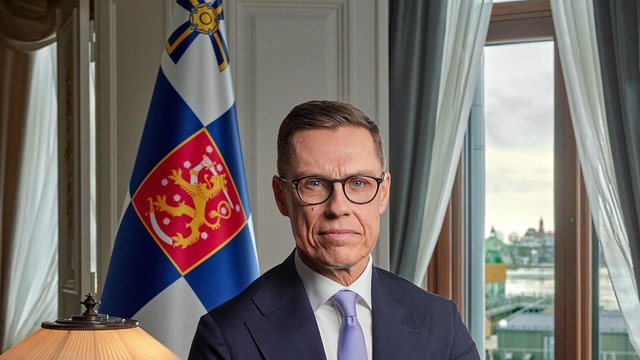Putin's Ukraine terms 'typical Russian tactics' – Stubb

Finnish President Alexander Stubb has said that Russian President Vladimir Putin's demands for Ukraine are typical Russian negotiating tactics and cannot be implemented from a practical point of view.
"This is typical Russian negotiating tactics. You say one thing at the beginning, and then you start to back down. This happens all the time," Stubb said on Fox News' One Nation program.
According to him, the conditions put forward by the Kremlin - including Ukraine's refusal to join NATO, the transfer of all of Donbas, including areas that are not yet occupied, and a ban on the deployment of Western troops on Ukrainian territory - are unacceptable.
Stubb drew an analogy with the US territories: "If you take what Putin is asking from Ukraine and compare it to the United States, it's a bit like the US giving up Florida, Georgia, South Carolina, North Carolina, Virginia, even Maryland and creating some kind of superhighway that can attack New York. So it's practically impossible."
The Finnish president stressed that a key result of the recent talks with US President Donald Trump was the start of work on the details of future security guarantees for Ukraine.
"The main security provider for Ukraine is Ukraine itself. It has one of the most modern and largest armies in the world. Second, Europe will support this. And third, the US is coordinating or providing some assistance, support and backing. (…) Russia will not be the one to tell Europe or the United States what they can and cannot do with security guarantees," he stressed.
Stubb also noted that the Russian side only responds to force. "The only thing President Putin understands is power, and the only person he listens to is Trump, and the only person he fears is Trump," he said.
The Finnish president drew a parallel between the current situation in Ukraine and Finland's experience with the Soviet Union in the 20th century.
"The foundation of statehood has three pillars. The first is independence, the second is sovereignty, and the third is territorial integrity or land. (…) After the Winter War, the Continuation War, and the peace treaty with Stalin in 1944, we retained our independence, unlike our Baltic friends who became part of the Soviet Union. But we lost our sovereignty (…) And then we lost 10% of our land. And I believe that it is very important that Ukraine not only retains its independence, but also, especially, its sovereignty, and then, finally, also retains its land," Stubb said.










